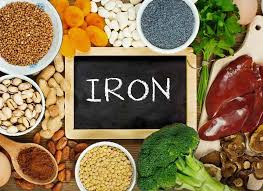
**1. ** Lean Meat:
- Include lean meats such as beef, pork, and poultry in your diet. These meats are rich in heme iron, which is easily absorbed by the body. Aim for a variety of cuts and cooking methods to keep your meals diverse and flavorful.
**2. ** Seafood:
- Incorporate seafood like shellfish, fish, and mollusks into your diet. These options, especially shellfish like clams and oysters, are excellent sources of heme iron. Fish such as tuna and salmon also provide essential omega-3 fatty acids.
**3. ** Beans and Lentils:
- Legumes like beans, lentils, and chickpeas are rich in non-heme iron, which is not as easily absorbed as heme iron. To enhance absorption, pair these foods with vitamin C-rich options like citrus fruits or bell peppers.
**4. ** Nuts and Seeds:
- Snack on nuts and seeds, such as almonds, sunflower seeds, and pumpkin seeds. These are convenient sources of iron that can be easily incorporated into your daily routine. Pair them with vitamin C-rich fruits for an added nutritional boost.
**5. ** Dark Leafy Greens:
- Include dark leafy greens like spinach, kale, and Swiss chard in your meals. These vegetables are rich in non-heme iron and also provide essential vitamins and minerals. Consider sautéing them with garlic and olive oil for added flavor.
**6. ** Fortified Foods:
- Opt for fortified foods such as cereals, bread, and tofu. Many of these products are enriched with iron and other essential nutrients. Check the labels to ensure they meet your dietary requirements.
**7. ** Dried Fruits:
- Snack on dried fruits like apricots, raisins, and prunes. These fruits are convenient and portable sources of iron. However, keep in mind that they are high in natural sugars, so moderation is key.
**8. ** Organ Meats:
- Consider adding organ meats like liver and kidney to your diet. These meats are incredibly rich in heme iron and provide a concentrated source of nutrients. Keep portions moderate due to their high vitamin A content.
**9. ** Quinoa:
- Quinoa is a versatile grain that serves as a good source of non-heme iron. It also contains other essential nutrients such as protein, fiber, and various vitamins. Use quinoa as a base for salads or as a side dish.
**10. ** Eggs: - Eggs, especially the yolk, are a good source of iron. They are also rich in protein, making them a nutritious addition to your diet. Enjoy them boiled, poached, or as part of various dishes.
It's crucial to note that while incorporating these iron-rich foods into your diet, paying attention to overall nutritional balance is essential. Iron absorption can be enhanced by consuming vitamin C-rich foods alongside iron sources. Additionally, avoiding excessive consumption of calcium-rich foods during iron-rich meals may aid absorption.
Lastly, consulting with a healthcare professional or a registered dietitian is advisable for personalized advice on managing anemia through dietary choices. They can provide tailored recommendations based on individual health conditions and dietary preferences.


You must be logged in to post a comment.